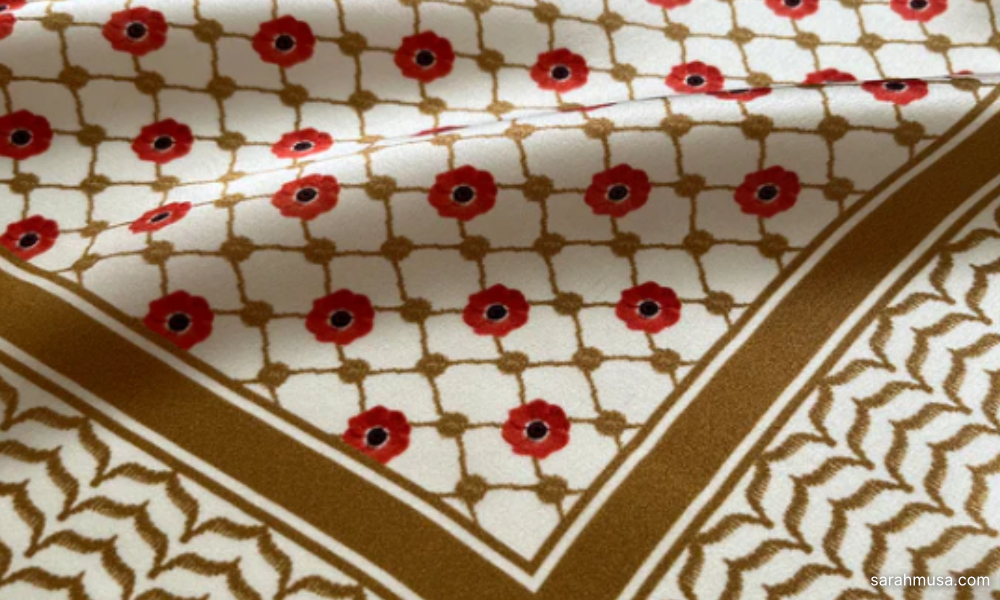Local scarf brand Lima Segi has halted the sale of its new product and apologised, after facing accusations that it had plagiarised a design by Palestinian designer Sarah Musa.
Lima Segi’s design, based on the keffiyeh scarf and poppy flowers - both associated with Palestine solidarity - looks almost identical to the silk scarf called “Poppyseed” produced by Sarah.
Lima Segi’s product launch generated outrage online, especially because Sarah had pledged all proceeds from the sale of the Poppyseed scarf to the Palestine Red Crescent Society and the Palestine Children’s Relief Fund.
In contrast, Lima Segi, upon product launch said it will announce later how much of the proceeds will be donated to the Palestine cause, and which organisation it will support.
Responding to the criticism, Lima Segi said: “Hi all. We have stopped selling the kufiyah (scarf) design and apologised to the owner, Sarah Musa, for this issue. Let’s support the original kufiyah by Sarah Musa.
“We are deeply sorry for the inconvenience,” said the Penang-based company via Instagram Stories, without explaining why it had used Sarah’s design for its product.
No transparency over proceeds
Sarah’s Poppyseed silk scarf retails at US$90 (about RM422.68) a piece, while Lima Segi’s scarves - mostly cotton voile or silk cotton - retail at RM59 each.
Earlier, New York-based Sarah, whose father is Palestinian and mother is Korean, expressed her disappointment over Lima Segi’s actions.

She said the company’s founder Gee Hazakaria has not been transparent with her about where the proceeds of Lima Segi’s products will be donated to or what will happen to the products the firm had ceased selling.
“As a Palestinian, I am grieving (for) my people and this is completely draining and not where I want to put my time and energy.
“This woman has no right ever to claim to be in support of Palestine or the Palestinian people or ever use our cultural print as inspiration,” Sarah said on Instagram.
Earlier, she said, the keffiyeh print “holds deep meaning” to her as a Palestinian and that each scarf that she sells is produced and hand-stitched in a family-run factory in Turkiye.
Uptick in Palestine-related products
The keffiyeh and other items symbolising Palestine have gained popularity among those seeking to show their solidarity with Palestine, prompting an uptick in the sale of commercial products featuring these designs.
Many but not all producers have pledged a portion of profits to the Palestinian cause.
“Most people don’t know, but many keffiyehs being sold are made in China and by non-Palestinians that are profiting millions from our suffering and putting Palestinians out of business.
“We already have our land, food, and culture being stolen and appropriated. If you want to support us, please be mindful of which products are being advertised as Palestinian but are not made by Palestinians,” Sarah said.
In 2021, critics accused luxury brands Fendi and Louis Vuitton of “cultural appropriation” and “profiting from oppression” when they incorporated the keffiyeh prints into its products.
LV had at the time sold monogrammed keffiyeh stoles costing US$705 while Fendi’s keffiyeh retailed at US$1,350.
“Stop trying to appropriate, mangle and mutate the keffiyeh,” he said. - Mkini



No comments:
Post a Comment
Note: Only a member of this blog may post a comment.